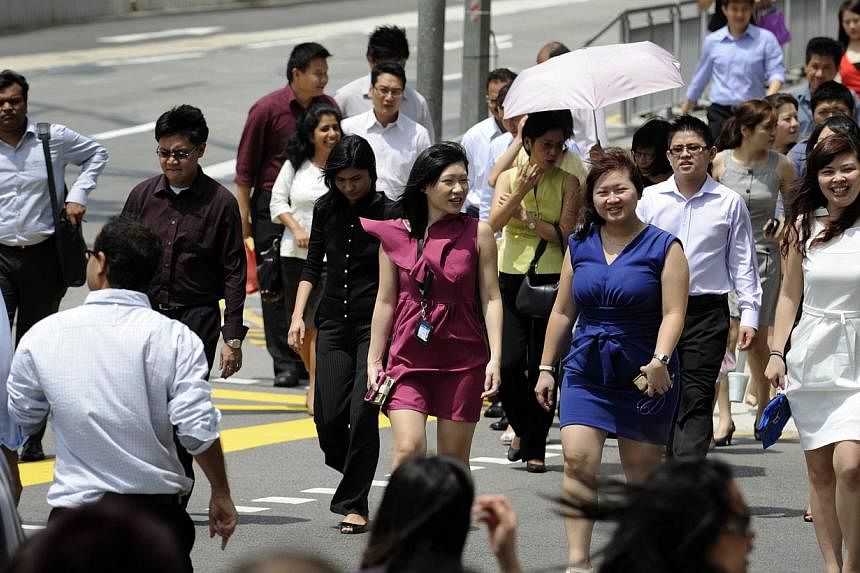Companies have received their first payouts from a scheme that subsidises wage increases, but most large firms are unlikely to hand the money directly to employees.
More than 10 prominent Singapore companies were contacted about their plans for the first Wage Credit Scheme payout, which went out in March.
While almost all declined comment, The Straits Times understands that many large companies are planning to channel the funds towards training and skills upgrading for staff.
Under the Wage Credit Scheme introduced in the 2013 Budget, the Government subsidises 40 per cent of pay rises given to Singaporean workers earning up to $4,000 a month. It expires next year.
The scheme came under the spotlight earlier this week when local lender OCBC Bank announced that it would be handing out its first $3 million payout to about 1,500 staff.
The bank is believed to be the first major company here to completely disburse the money to workers.
Mr Victor Mills, the chief operating officer and acting chief executive of the Singapore International Chamber of Commerce, said firms "should do the most appropriate thing for the companies and their employees".
"Larger companies usually focus on training and development," he said. "The point is to increase companies' capabilities."
Mr Mills added that the chamber has not found it necessary to issue guidelines to members on how to use the money, as "it is entirely up to them".
The chamber represents more than 700 global companies here.
The Singapore National Employers Federation said feedback it has received shows that most employers are using the funds to offset higher business and manpower costs.
The federation "encourages companies to share their productivity gains with employees", said executive director Koh Juan Kiat.
While human resource experts and unionists back the OCBC move, they are also realistic that not every company will be able to follow suit.
"It is a good gesture of showing appreciation to the staff," said Mr Erman Tan, president of the Singapore Human Resources Institute, adding: "But only companies that do well have the resources and ability to do it."
Veteran labour Member of Parliament Yeo Guat Kwang said small and medium-sized enterprises (SMEs) may face difficulties giving the Wage Credit payouts to workers. "Of course we want companies to share the payment with workers, but we are realistic that the SMEs that face cost constraints may not be able to do so," he said.
Mr Zainal Sapari, National Trades Union Congress assistant secretary-general, said low-wage workers will benefit most if firms share the Wage Credit refunds.
"But if the money can be used to raise productivity which leads to sustainable pay increases in the long run which is higher than the one-time payment, then I would prefer firms invest to raise productivity," he said.
But at least one worker who got a raise last year is happy with her higher pay. Madam Chua Yam Khen, a cleaner at a polytechnic, saw her monthly pay rising from $850 to $1,000 last year. Part of the increase was subsidised by the Wage Credit. But the 67-year-old does not expect her employer to share the subsidy with her.
"It is up to the boss, but having more money is definitely useful for workers who do not earn much," she said in Mandarin.

